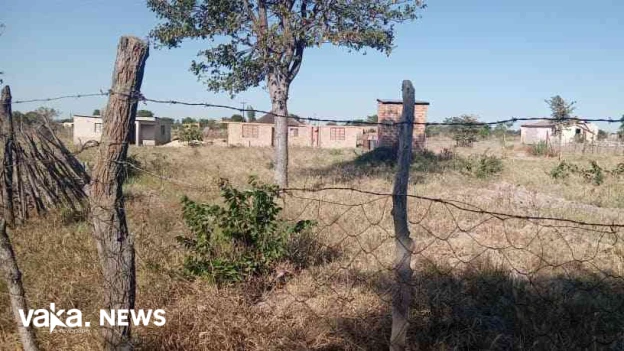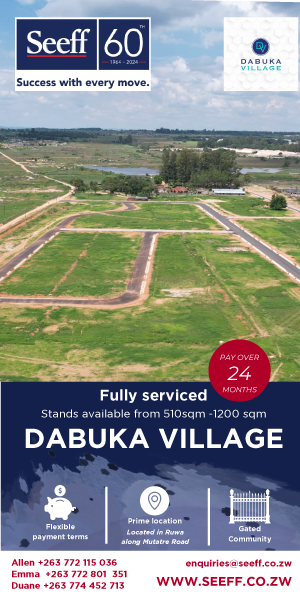EDITORIAL COMMENT: Reallocating unused farmland welcome policy
- Category: Real Estate

- By Dion Kajokoto
THE land reform programme in the early 2000s gave a lot of Zimbabweans the opportunity to become good farmers, especially when this was backed by the input schemes under the Second Republic, and now the redistributed land is producing more than it did under its previous owners.
But it would be producing quite a lot more if everyone who applied and who was granted a farm under land reform had used that farm instead of just keeping it for speculation or some sort of insurance against job loss or old age, but never intending to move into farming as a proper business.
After the national audit was finished, the government was able to determine whether or not the small and medium-sized farms that were separated from the land that was given to the state were being used at all.
In response to questioning in Parliament last week, Minister of Justice, Legal, and Parliamentary Affairs Ziyambi Ziyambi made it clear that withdrawal letters will be sent to anyone who were given property but have not been utilizing their farms or have not been using them properly.
These will nullify the offer letters that were first used to assign the farms.
We assume that the Government will consider all relevant factors, such as the obvious one that a new farmer needs to establish their business by using more land each year and may still have some unused land at this point, but with a good portion already in production and plans for the remaining portion.
However, as Minister Ziyambi pointed out, some people were content with a simple country cottage that was used for a weekend braai a few years ago. One issue is the notion of "a piece of land" that is frequently discussed.
Having "a piece of land" appeals to a lot of individuals, sometimes for aesthetic reasons and other times because it may provide future stability.
Sadly, the government has not been distributing "pieces of land" to them.
The precise amounts and types of crops and livestock that are raised depend on a number of factors, such as the ecological zone, average rainfall, availability of water, and whether the land is suitable for arable farming or is better suited for ranching. Farms have been allotted and are meant to be used for these purposes.
With its wide range of input programs, the Second Republic has gone a step further in ensuring that all farmland be farmed profitably and that all farmers, regardless of farm size, run profitable businesses that also, in many cases, raise a significant portion of the food that the farmers and their families consume.
Farms are meant to be used for farming, as Minister Ziyambi pointed out. The government has made accommodations for numerous unique situations. For instance, it now permits people who feel that their allotment is excessive to rent out a piece of their farm.
Under these plans, the farm continues to be in production, and they deal with changes, like an elderly person who was given a farm in the prime of middle age but is now unable to manage since they have no children, or at least none who are interested in farming.
Some are lucky enough to have an adult child who wants to farm and most likely knows a lot about it. We see cottages where the "old folks" live while their active offspring manages the farm on a number of farms. This is prevalent to all civilizations and is natural.
In certain instances, the audit must have shown that a specific farm had a lot of underutilized land since the holding was assigned to a farmer whose resources could not accommodate its size.
The farmer merely needs a smaller farm because he is not idling around and is producing. This is when there's a chance to reduce the farm's size and repurpose the remainder.
Only the land that is idle and unlikely to be used in the near future needs to be removed from the farm; the rest of the farm doesn't need to be abandoned.
In addition to the necessity that farms remain in operation, we must keep in mind that there are considerably more applicants for land than there is available free land.
There are plenty of people who wish to farm who are willing to take over vacant property and turn it into profitable farms because most districts and provinces have growing waiting lists.
The goal of land reform was to remain ongoing. It is evident from the Constitution's provisions and the specific legislation that this is an ongoing process intended to grant land access to Zimbabweans who want to farm and produce.
From land held by slightly more than 4,000 original owners, a sizable portion was transferred into State control and divided into about 254 000 farms of various sizes.
However, it is unrealistic and unfair to think that such a vast and productive basis should be set in stone in any way.
In addition to having a right to continue utilizing the farms they were allotted, those who are currently using them also clearly have a claim to some security, if not outright ownership.
However, individuals who are not using their land should be aware that there was a "use it or lose it" policy in place from the start, and there have been complaints of repeated allocations and other administrative issues that need to be resolved.
After the Second Republic's land audit was finished, all of this transitioned from theory to actual policy.
The creation of the necessary database listing the people who were given the farms and their land use has been a crucial component of the audit, since the government wanted to know how that sizable block of State rural land was being used.
Ultimately, the new land information management system (LIMS) facilitates accurate record-keeping as land is allocated, new farmers inherit farms or are given land, and production uses evolve and expand. It also finally makes it simple to see exactly what is happening on the ground, literally in this case.
There were millions of manual files containing the data. Now that it has been transformed into a functional, contemporary database, it can be utilized to locate and oversee this sizable State estate as well as guarantee that the land is farmed to enable Zimbabwe to keep producing additional milk, cash crops, food, and livestock.






